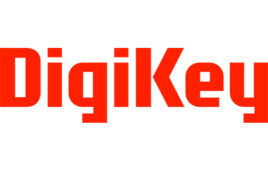Leland Teschler • Executive Editor
[email protected]
The process of finding productive knowledge workers has become a high-stakes game. In the effort to weed out weak job candidates, one of the tools businesses have employed is the personality profile. Consider a few selected comments from one such analysis of an engineering job candidate: (the candidate) tends to be a slow worker who often takes more time to complete an assignment than most other professionals….Also, he is a slow starter who has some trouble getting himself moving … and may need some time to warm up to his tasks… Along with this, the candidate seems to have trouble concentrating when faced with interruptions or distractions.. he may be too patient with those who resist changes that are necessary.
All in all, it sounds as though this candidate might be kind of a stiff. But maybe not. After  reviewing a century’s worth of research on selecting job candidates, researchers from the University of Iowa, Temple University, and West Texas A&M University concluded that personality profiles like this one don’t predict how well job candidates are likely to perform. In fact, they found the best tests for predicting job performance were those assessing only general intelligence and integrity.
reviewing a century’s worth of research on selecting job candidates, researchers from the University of Iowa, Temple University, and West Texas A&M University concluded that personality profiles like this one don’t predict how well job candidates are likely to perform. In fact, they found the best tests for predicting job performance were those assessing only general intelligence and integrity.
University of Penn. Wharton People Analytics Initiative researcher Reb Rebele recently explained some of the problems with trying to infer things from tests of job candidate personality. Some such assessments, he says, are little more than what some scholars call “pseudo-profound BS” – the results sound meaningful, but they bear little resemblance to any objective truth. More troubling, though, is evidence that an individual’s personality can vary dramatically over the span of a couple weeks. Moreover, people can shift their personalities to some degree in the interest of near-term benefits and long-term goals, Rebele says. For example, one study has found that people tend to become more conscientious right before getting a job.
These studies help make the argument that personality tests are a poor way of judging job candidates. But Rebele claims there are approaches that show promise. In one case, he helped an organization in the health care field devise a test for that assessed candidates’ situational judgement. It asked them to make decisions in hypothetical situations that closely mimicked those likely to crop up on the real job. It turned out giving good answers to questions along these lines was a much better predictor of job performance than any other measure the researchers tried.
In another study, George Mason University researchers found that employees with consistent personalities more generally went beyond the call of duty at work. But measurements of personality consistency would involve multiple, extended testing, something not likely to happen when sifting through a pile of job candidate resumes.
Results like these make it clear personality tests have the potential to give misleading results about potential job candidates. That brings us back to the engineering applicant pegged as a “slow worker” by the head shrinkers who tested him. You may have guessed that I was the applicant. Fortunately, the guy who hired me didn’t put much stock in personality profiles. He gave me my psych test results when he retired.
And for the record, I can’t recall ever taking heat for being a slow worker or for being a slow starter during a working career that now extends forty-plus years.
You may also like:
Filed Under: Commentaries • insights • Technical thinking, MOTION CONTROL








